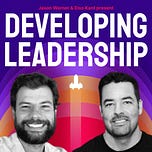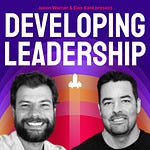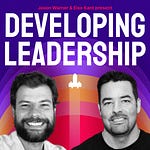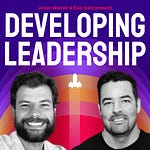Neo4j just raised the biggest round in database history and their CEO, Emil Eifrem, joins us on the podcast to tell us about his experience transitioning from a day one CEO to running a company with more than 500 employees.
In this episode, Eiso and Jason start to scratch the surface on the importance of data and metrics for software engineering teams and how engineering leaders can use data to ask the right questions and help their companies to thrive.
Here are a few of our favorite moments from the conversation
So I call this the competence, confidence spectrum. Most engineers are going to grow up, trying to show their competence. Most high-level executives don't understand the competence, so they need to proxy your confidence to competence.
Everyone who knows me knows that I very commonly say "all problems in the company are communication problems and all communication problems root from lack of trust". And I know that's an exaggeration to an extent, but you see this even within your personal relationships, you need very few words where you can even say the wrong thing, but if your basis of trust between two people or two groups of people is strong, then you assume the best intentions and you go to the next step. And so I think that, as the foundation of best in class, it probably couldn't have been said better.
The data helps you ask the right questions. And that's really where it needs to be used. And it's this fine balance between some level of target setting and some slight level of gamification. There are things that we can all agree on, like CI time. You want the engineers to work on bringing CI time down as low as possible within reason because it's going to make everyone in the organization faster.
It's critically important that engineering leaders hear on this podcast that velocity is their responsibility. That's part of what an engineering leader is supposed to do. Now the challenge is going to be about where the prioritization happens.
Most organizations get slower and more bureaucratic, but the point of adding more people is that you can go faster, do more things and do it in scale. So you should be able to find a way to keep your velocity or even go up as you scale. Most people don't.
💡 Topic Explainers
🛠 PLG: Product Led Growth
Product-led growth (PLG) is a business methodology in which user acquisition, expansion, conversion, and retention are all driven primarily by the product itself. It creates company-wide alignment across teams—from engineering to sales and marketing—around the product as the largest source of sustainable, scalable business growth.
You can read more about PLG at www.productled.org
🛠 Systems Thinking
Systems thinking is an approach to problem-solving that views ‘problems’ as part of a wider, dynamic system. It is the process of understanding how things influence one another as part of a whole. Systems thinking involves much more than a reaction to present outcomes or events. It demands a deeper understanding of the linkages, relationships, interactions, and behaviors among the elements that characterize the entire system. source: futurelearn.com
There is much more to learn and explore when it comes to Systems Thinking. If you would like to dive deeper into the topic, we recommend reading The Fifth Discipline: The Art and Practice of the Learning Organization by **Peter Senge. We also like this article by Leyla Acaroglu, which goes over some of the tools one can use when adopting a Systems Thinking approach.
🛠 The Competence, Confidence Spectrum
"Lead with confidence, show a little bit of competence, and end with confidence again." - Jason Warner
Sales Leaders have a lot of "Jock-like" confidence, so when they are in front of a CEO, they generate trust, simply by transmitting a "we can do this" message. However, Jason says that "most engineers are going to grow up trying to show their competence. Most high-level executives don't understand the competence, so they need to proxy your confidence to competence" This is where the above advice stems from.
🛠 The Five Dysfunctions of a Team
Written by Patrick Lencioni in 2002, The Five Dysfunctions of a Team is a leadership fable that describes and offers advice for overcoming the human behavioral tendencies that corrupt teams. The five dysfunctions of a team are:
Absence of trust
Fear of conflict
Lack of commitment
Avoidance of accountability
Inattention to results
🛠 Montessori School
Montessori is a method of education that is based on self-directed activity, hands-on learning, and collaborative play. In Montessori classrooms, children make creative choices in their learning, while the classroom and the highly trained teacher offer age-appropriate activities to guide the process.
Source: montessori-nw.org
🛠 GitHub Actions & GitHub Copilot
GitHub Actions help you automate tasks within your software development life cycle. GitHub Actions are event-driven, meaning that you can run a series of commands after a specified event has occurred. For example, every time someone creates a pull request for a repository, you can automatically run a command that executes a software testing script.
GitHub Copilot is a new service from GitHub and OpenAI, described as “Your AI pair programmer”. It is a plugin to Visual Studio Code which auto-generates code for you based on the contents of the current file and your current cursor location.
Source: github.com
🛠 Monday Morning Quarterback
A Monday Morning quarterback is a person who passes judgment on and criticizes something after the event, such as sports commentators.
Jason uses this expression when talking about the importance of hindsight view when it comes to engineering teams, and how data and metrics can help to identify velocity issues, such as bottlenecks, and help to ask questions that could ultimately improve team performance.
Developing Leadership is powered by Athenian. We are introducing a winning approach to engineering metrics that can help you empower your teams to autonomously improve. If you want to learn more, go to athenian.com












